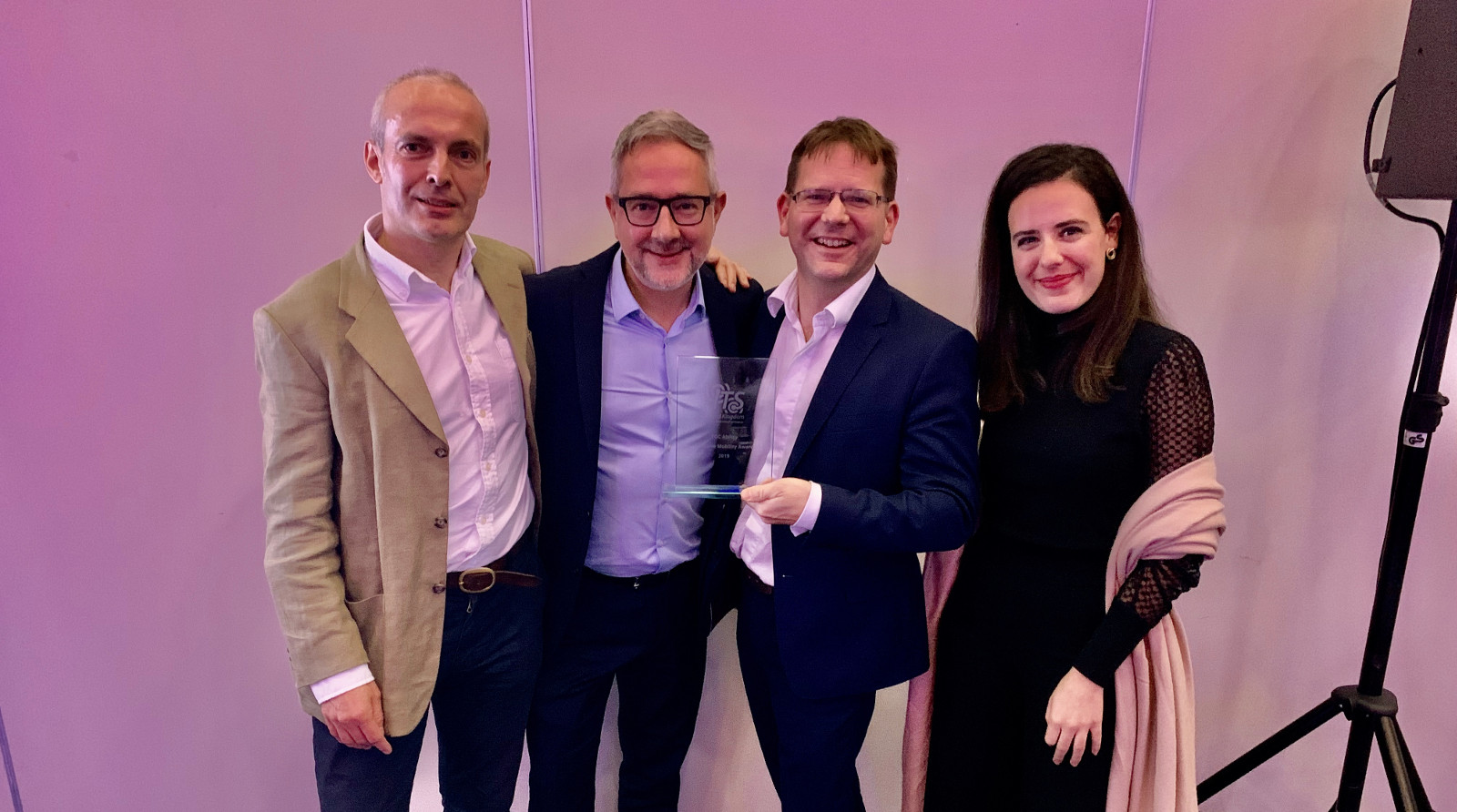‘Access for all’ as a fundamental requirement
Last night we picked up the ITS (UK) ‘innovation award for Inclusive Mobility’, yet access to transport networks, and to many destinations, the workplace, venues and events, still remains dire.
Mixed messages are sent to people trying to get from A to B, via a myriad of apps. Information and signage are often in different formats in different regions, there’s close to zero sharing of key customer information between service providers, and so-called ‘accessible routes’ are disrupted or rendered completely inaccessible as we constantly rebuild our towns and cities. In parallel, siloed special assistance services target the disabled community in a bid to tick a box for ‘social responsibility’.
In my view this is the wrong approach.
If you count hidden disabilities and mental conditions, the majority of us are or will be disabled to some degree and some point in our lives. Regardless, and not to belittle the personal circumstances that many people have to contend with day-to-day, we all have ‘specific needs’ when it comes to transit; bike storage, luggage… children! When peoples’ needs are considered and the corresponding information shared, as opposed to generic ‘shortest path’ travel advice, we significantly improve accessibility.
Whilst catering for certain needs is arguably more ‘business critical’ than others, the approach to designing public services needs to change, so that accessibility for everyone is considered a fundamental requirement. It’s not easy to implement of course, but instead of building exclusive services for minority groups, that increase the challenges of interoperability, I believe we can work towards a one-size-fits-all approach to service design. In the UK, Government Digital Services have come a long way in achieving this but extending the approach to physical infrastructure and human interaction is key. If we do, ‘whole places’, as opposed to a mish-mash of disparate services, will become more accessible. Only then can we lay claim to equality, diversity and inclusion.
Thanks to Atkins, Nick Goss, RSSB, Department for Transport (DfT), United Kingdom, Loughborough University and University of Surrey for helping to deliver the #TOCAbility initiative – which is a step in the right direction.
More info: http://tocability.com

